
Find A Professional
More Items From Ergsy search
-

What types of nuts can cause allergies?
Relevance: 100%
-

Are nut oils safe for people with nut allergies?
Relevance: 89%
-

Can nut allergies be outgrown?
Relevance: 85%
-

Can tree nuts and peanuts cause cross-reactions?
Relevance: 85%
-

What are Nut Allergies?
Relevance: 79%
-

What is the difference between a nut allergy and intolerance?
Relevance: 74%
-
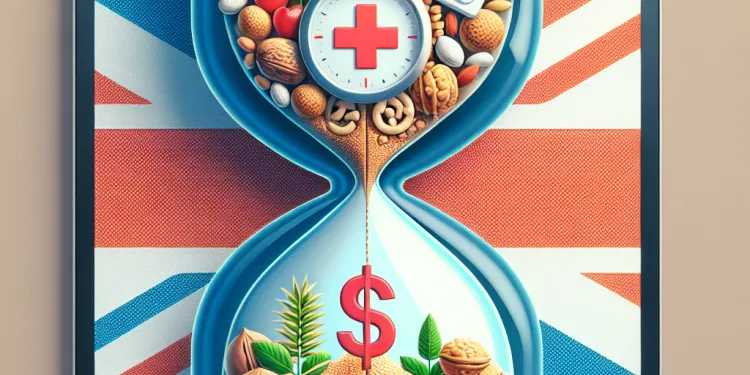
Can nut allergies develop later in life?
Relevance: 74%
-

What should I do if I think I have a nut allergy?
Relevance: 63%
-

How can nut allergies be managed?
Relevance: 62%
-

How can I prevent cross-contamination with nuts in the kitchen?
Relevance: 57%
-

What foods should I avoid if I have a nut allergy?
Relevance: 56%
-

Is there a cure for nut allergies?
Relevance: 56%
-

What are the symptoms of a nut allergy?
Relevance: 55%
-

How is a nut allergy diagnosed?
Relevance: 54%
-

Is it safe to eat foods labeled as 'may contain nuts'?
Relevance: 48%
-

What should I tell my family and friends about my nut allergy?
Relevance: 38%
-

How are food allergies managed in UK schools?
Relevance: 32%
-

What are Dairy Allergies?
Relevance: 32%
-

What if I have an egg allergy, can I still get the flu vaccine?
Relevance: 32%
-

Is epinephrine the only treatment for severe nut allergy reactions?
Relevance: 30%
-

Is it possible to be allergic to the sun?
Relevance: 26%
-
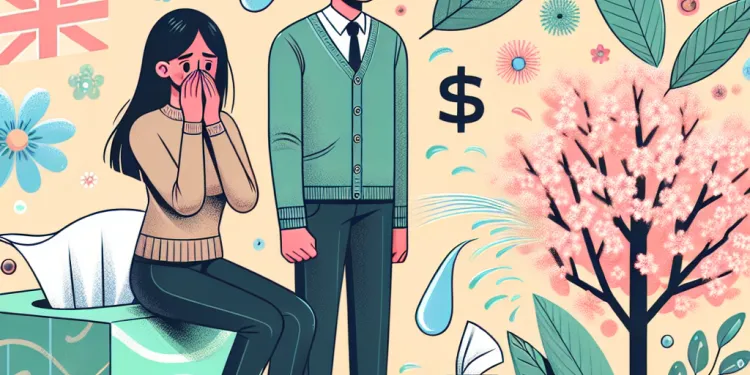
Dealing with Seasonal Allergies
Relevance: 23%
-

Are there any recent treatments or research developments for nut allergies?
Relevance: 21%
-
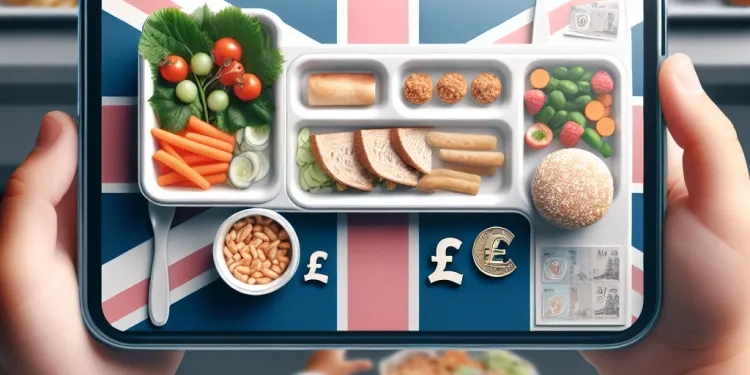
How are special dietary requirements catered for in school meals?
Relevance: 20%
-

What is the purpose of providing school meals in the UK?
Relevance: 18%
-

Do pets contribute to hay fever?
Relevance: 15%
-

Are there educational components to the school meal program?
Relevance: 15%
-

How can I reduce my exposure to pollen?
Relevance: 12%
-
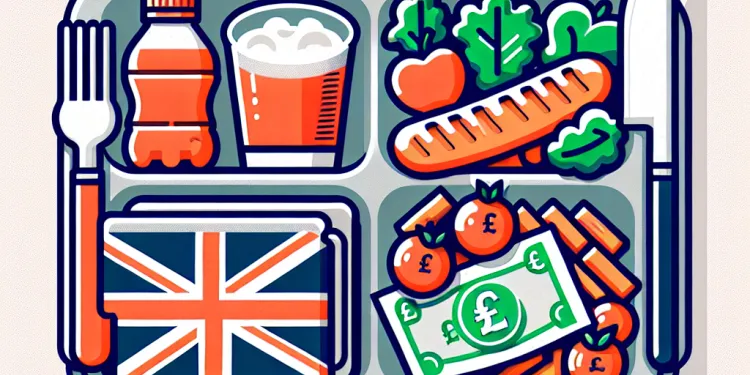
What is included in a typical school meal in the UK?
Relevance: 12%
-

What foods can trigger nettle rash?
Relevance: 11%
-

Nutrition for Pregnancy: What to Eat
Relevance: 11%
-

How are school meals provided in the UK?
Relevance: 11%
-

Are school meals inspected for quality and standards?
Relevance: 10%
-

How can parents provide feedback on school meals?
Relevance: 10%
-

What dietary changes can help manage Crohn's disease?
Relevance: 9%
-
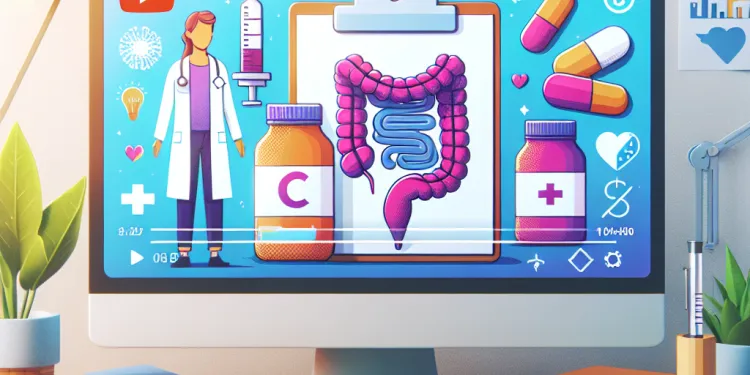
What treatments are available for Crohn's disease?
Relevance: 9%
-

The treatment approach for an eating disorder
Relevance: 9%
-

Is there a focus on healthy eating in UK school meals?
Relevance: 9%
-

Can diet affect ADHD symptoms?
Relevance: 9%
-

Who is responsible for providing school meals in the UK?
Relevance: 9%
Understanding the Nut Allergy
When you have a nut allergy, your immune system reacts to proteins found in nuts as if they were harmful substances. This reaction can lead to symptoms ranging from mild, such as hives or a rash, to severe, such as anaphylaxis, which can be life-threatening. It's crucial for your family and friends to understand the seriousness of this allergy in order to support you effectively.
Communicating the Severity
Begin by explaining the severity of your allergy to your loved ones. Emphasize that even a small amount of nut exposure can trigger a serious reaction. Make it clear that vigilance is needed, as cross-contamination or hidden ingredients in food can also pose a risk. Stress the importance of reading food labels and being cautious when dining out.
Identifying Allergic Reactions
Help your family and friends recognize the signs of an allergic reaction. Common symptoms include itching, swelling of the lips or throat, difficulty breathing, and dizziness. In severe cases, anaphylaxis can occur, which is a medical emergency requiring immediate attention. Provide them with written information or visual aids that explain these signs.
Developing an Emergency Plan
Equip your close contacts with an action plan in case of accidental exposure. Teach them how to use an adrenaline auto-injector, such as an EpiPen, and remind them to call emergency services immediately after administration. Make sure they know where you keep your medication and carry a card or bracelet that indicates your allergy.
Hosting or Attending Events
Discuss with your family and friends how to manage nuts during gatherings. If you're hosting, let them know you will provide nut-free dishes and request the same consideration when attending events. Encourage open communication about the ingredients used in meals and ask for assistance in ensuring a safe eating environment.
Dining Out Safely
When dining out, ensure your companions are aware of the need to inform restaurant staff about your allergy. Choose venues that are known for handling allergies safely, and order simple, less risky dishes. Your friends and family can also help by asking questions about meal preparation and ensuring there's no risk of cross-contamination.
Providing Ongoing Support
Your friends and family play a vital role in helping you manage your nut allergy. Encourage them to learn more about allergic conditions through reputable sources and consider joining support networks together. Keep communication open; updates from you on how to assist best will ensure they continue to understand and support your needs.
Understanding Nut Allergy
If you have a nut allergy, it means your body thinks nuts are bad for you. This can cause signs like itchy skin or a rash. Sometimes it can be very serious and make it hard to breathe. It's important for family and friends to know how serious this is so they can help keep you safe.
Telling Others How Serious It Is
Tell your family and friends how serious your allergy is. Even a tiny bit of nuts can make you very sick. Explain that they must check food labels carefully and be careful when eating out. This can stop accidents from happening.
Knowing the Signs of an Allergic Reaction
Help your family and friends know what to look for if you have a reaction. You might itch, your lips or throat might puff up, and you might find it hard to breathe. If it's very bad, it's called anaphylaxis and you need help fast. Give them pictures or lists of these signs so they can remember.
Making an Emergency Plan
Teach your close family and friends what to do in an emergency. Show them how to use an EpiPen and tell them to call for help straight away. Make sure they know where you keep your medicine and always wear a card or bracelet saying you have an allergy.
Going to Events
Talk with your family and friends about keeping events safe. If you're hosting, let everyone know you will make nut-free food. If you're going to a party, ask them to make nut-free food too. Be open about what's in the meals to keep things safe.
Eating Out Safely
When eating out, make sure your friends and family know to tell the waiters about your allergy. Pick restaurants that are careful with allergies. Order simple foods that are less likely to have nuts. They can ask the staff about how the food is made to make sure it's safe.
Getting Support
Your friends and family are important in helping you manage your nut allergy. Encourage them to learn more from good sources and maybe join support groups with you. Keep talking to them about how they can help. This way, they can always understand and better support you.
Frequently Asked Questions
What is a nut allergy?
A nut allergy is an immune system reaction that occurs soon after someone eats nuts or foods containing nuts. It can cause severe symptoms and can be life-threatening.
What nuts am I allergic to?
You should tell your family and friends which specific nuts you are allergic to, such as peanuts, almonds, cashews, walnuts, etc.
What are the symptoms of a nut allergy?
Symptoms may include hives, swelling, difficulty breathing, anaphylaxis, stomach pain, vomiting, and a runny nose.
What should I do if I accidentally eat nuts?
You should seek emergency medical help immediately and use an epinephrine auto-injector if available.
Do I need to carry an epinephrine auto-injector?
Yes, it is essential to carry an epinephrine auto-injector at all times in case of accidental exposure.
Should my family and friends learn how to use an epinephrine auto-injector?
Yes, it is important for them to know how to use it in case you need help during an allergic reaction.
Can I eat foods that say 'may contain traces of nuts'?
It's best to avoid these foods as even small traces might trigger an allergic reaction.
How should I communicate my nut allergy in restaurants?
Inform the server clearly about your allergy and ask about the ingredients and preparation methods for your food.
Is it safe to eat foods processed in the same facility as nuts?
There is a risk of cross-contamination, so you should avoid these foods unless you have confirmed they're safe for you.
What should my family do in case I have an allergic reaction?
They should administer an epinephrine shot if needed and call emergency services immediately.
Can nut allergies be outgrown?
Some people may outgrow certain nut allergies, especially peanut allergies, but it varies per individual.
How can my friends help keep me safe from nut exposure?
They can help by making sure there are nut-free options available at gatherings and being mindful of what they eat around you.
Are nut oils dangerous for someone with a nut allergy?
Cold-pressed, expelled, or extruded oils can contain allergens, so it's best to avoid them.
What precautions should be taken in a shared kitchen?
Use separate utensils and cookware, and clean surfaces thoroughly to avoid cross-contamination.
Can I kiss someone who has eaten nuts?
Kissing someone who has recently eaten nuts may expose you to allergens, so it's best to wait a few hours and ensure oral hygiene.
Are there any non-food items that might contain nuts?
Yes, some cosmetics, lotions, and shampoos may contain nut-derived ingredients.
How should I handle invitations to events where nuts may be present?
Communicate your allergy to the host in advance and ask about the menu. Consider bringing safe snacks.
Is it safe to travel with a nut allergy?
Yes, but plan ahead. Inform the airline of your allergy, and carry safe snacks and your medication.
Can nut allergens be airborne?
While rare, in some cases, such as cooking nuts, allergens can become airborne and may pose a risk.
How often should I review my allergy management plan with my family?
Regularly review and update it as needed, especially if there are changes in your condition or treatment.
What is a nut allergy?
A nut allergy is when some people's bodies say "no" to nuts. Their bodies do not like nuts. Eating nuts can make them feel unwell.
If you have a nut allergy, stay away from nuts. Tell others about your allergy. Ask adults to help you. They can check if food has nuts in it.
If you feel bad after eating nuts, tell someone quickly. Grown-ups can help make you feel better.
A nut allergy is when your body has a bad reaction after you eat nuts or food with nuts. It can make you very sick and can be very dangerous.
Which nuts make me sick?
It is important to tell your family and friends exactly which nuts you cannot eat. This means saying if you are allergic to peanuts, almonds, cashews, walnuts, or other nuts.
What happens if you are allergic to nuts?
When someone has a nut allergy, their body does not like nuts.
If they eat nuts, they might feel sick.
Here are some signs that someone might be allergic to nuts:
- They might start itching or get red skin.
- They could have trouble breathing.
- Their tongue or lips might swell or feel big.
- They may get a tummy ache or feel like they have to throw up.
If someone thinks they have a nut allergy, they should tell an adult.
It is important to know and ask a doctor for help.
Tools to help: Use simple words and pictures to remember these signs. Talk to a doctor or nurse if you're worried.
Signs you might have an allergy can be: red and bumpy skin (hives), parts of your body getting bigger (swelling), finding it hard to breathe, a very bad reaction called anaphylaxis, stomach ache, throwing up (vomiting), and having a runny nose.
Using pictures can help you remember these signs. You can also ask someone to read this out loud to you.
What to Do if You Eat Nuts by Mistake
If you eat nuts by mistake:
- Stay Calm: Take a deep breath and try to stay calm.
- Tell Someone: Let an adult or friend know what happened. They can help you.
- Use Medicine: If you have medicine for allergies, like an EpiPen, use it right away.
- Call for Help: If you feel sick or your throat is tight, call 911 or ask someone to call for you.
- Go to the Doctor: Even if you feel okay, make sure to see a doctor right away.
Try to avoid nuts in the future. Ask for help reading food labels. A trusted grown-up can help keep you safe.
If someone is really sick all of a sudden, get help right away. Use an epinephrine pen if you have one.
Do I need to carry an epinephrine auto-injector?
An epinephrine auto-injector is a medicine pen. It helps if you have a serious allergic reaction called anaphylaxis. Some people need to carry it if they have allergies.
Ask your doctor or nurse if you need one. They can tell you if it’s important for you.
If you carry an auto-injector, practice using it. You can use a trainer pen to practice. Remember to keep it with you all the time if you need it.
Yes, it is very important to always have an epinephrine auto-injector with you in case of an accident.
Should my family and friends learn how to use an epinephrine auto-injector?
Epinephrine auto-injectors are tools that help people who have bad allergic reactions.
It's smart for your family and friends to learn how to use it.
Why? Because if you have a reaction, they can help you quickly.
Here are some tips to help them learn:
- Watch a video online together.
- Practice with a trainer auto-injector.
- Ask your doctor for advice and lessons.
Everyone can feel safer if they know what to do.
Yes, it is good for them to know how to use it. They can help you if you have an allergy problem.
Is it safe for me to eat foods that say 'may have tiny bits of nuts'?
Some foods might say 'may have tiny bits of nuts.' This means they could have a little bit of nuts by accident. If you are allergic to nuts, ask a grown-up or a doctor if it is safe for you to eat them.
Use a picture chart or app to help you understand labels and stay safe.
Try not to eat these foods because even a little bit can make you sick if you are allergic.
How can I tell people in restaurants about my nut allergy?
Tell the waiter clearly about your allergy. Ask what is in the food and how it is made.
Can I eat food made in the same place as nuts?
Some foods are made in places where they also use nuts. If you have a nut allergy, this might be a problem.
Here are some tips to stay safe:
- Check the food label. It might say "may contain nuts" or "made in a facility with nuts." You may need to avoid these foods.
- Ask a grown-up to help you read the label or find out more information.
- Use tools like picture guides or apps to learn about foods that are safe for you.
Be careful. Sometimes foods can mix with things that might not be safe for you. Only eat them if you know they are okay for you.
What should my family do if I have an allergic reaction?
If someone needs help, they should give them an epinephrine shot right away. Then, call emergency services fast.
Can you stop being allergic to nuts?
Some people are allergic to nuts. This means eating nuts can make them sick.
Some children can stop being allergic to nuts as they grow up. But not everyone will.
If you are allergic to nuts, talk to a doctor. They can help and give advice.
Maybe try a special allergy test. This can show if you still have the allergy.
Remember, always stay safe around nuts.
Some people might stop being allergic to nuts as they get older. This can happen with peanut allergies too, but it is different for each person.
How can my friends help keep me safe from nuts?
Your friends can help keep you safe by:
- Not eating nuts when they are with you.
- Washing their hands after eating nuts.
- Checking food labels for nuts when sharing food with you.
- Telling you if they see nuts nearby.
You can also use these tools to help:
- Carry a medic alert bracelet to tell others about your nut allergy.
- Have emergency medicine with you, like an EpiPen.
Talk to your friends about how to help keep you safe!
People can help by making sure there are foods without nuts at parties. They should also be careful about what they eat when they are near you.
Can nut oils be bad for people with nut allergies?
If you are allergic to nuts, be careful with nut oils.
Nut oils come from nuts. They might still have tiny bits of nuts in them.
Use tools like an adult or doctor to help check if oils are safe for you.
Some oils can have things that make people allergic. These oils are called cold-pressed, expelled, or extruded. It is better not to use them.
What should you do to stay safe in a shared kitchen?
Use different cooking tools and pans. Clean everything well to keep germs and dirt away.
Can I kiss someone who ate nuts?
If you want to kiss someone who ate nuts, you need to be careful. Some people are allergic to nuts.
If you are allergic to nuts, ask the person to brush their teeth and wash their mouth before kissing.
If you’re not sure, it's good to talk about it to be safe.
Using a planner or reminder app can help you remember to ask important questions like this.
If someone eats nuts, kissing them might make you get allergies. It is a good idea to wait a few hours after they eat nuts, and make sure they have clean teeth and mouth.
Do things that are not food have nuts in them?
Yes, some make-up, creams, and shampoos might have things from nuts in them.
What can I do if I'm asked to go to a place where there might be nuts?
Tell the person having the party about your allergy before you go. Ask them what food they will have. You could also bring some safe snacks with you.
Can I travel safely if I am allergic to nuts?
Yes, but plan ahead. Tell the airline about your allergy. Bring safe snacks and your medicine.
Can nut allergies spread through the air?
It does not happen often, but sometimes when cooking nuts, tiny bits can go into the air. This might cause problems for people who are allergic to nuts.
How many times should I talk about my allergy plan with my family?
Check your plan often. Change it if things about your health or care change.
Useful Links
- Ergsy carfully checks the information in the videos we provide here.
- Videos shown by Youtube after a video has completed, have NOT been reviewed by ERGSY.
- To view, click the arrow in centre of video.
- Most of the videos you find here will have subtitles and/or closed captions available.
- You may need to turn these on, and choose your preferred language.
- Go to the video you'd like to watch.
- If closed captions (CC) are available, settings will be visible on the bottom right of the video player.
- To turn on Captions, click settings .
- To turn off Captions, click settings again.
More Items From Ergsy search
-

What types of nuts can cause allergies?
Relevance: 100%
-

Are nut oils safe for people with nut allergies?
Relevance: 89%
-

Can nut allergies be outgrown?
Relevance: 85%
-

Can tree nuts and peanuts cause cross-reactions?
Relevance: 85%
-

What are Nut Allergies?
Relevance: 79%
-

What is the difference between a nut allergy and intolerance?
Relevance: 74%
-

Can nut allergies develop later in life?
Relevance: 74%
-

What should I do if I think I have a nut allergy?
Relevance: 63%
-

How can nut allergies be managed?
Relevance: 62%
-

How can I prevent cross-contamination with nuts in the kitchen?
Relevance: 57%
-

What foods should I avoid if I have a nut allergy?
Relevance: 56%
-

Is there a cure for nut allergies?
Relevance: 56%
-

What are the symptoms of a nut allergy?
Relevance: 55%
-

How is a nut allergy diagnosed?
Relevance: 54%
-

Is it safe to eat foods labeled as 'may contain nuts'?
Relevance: 48%
-

What should I tell my family and friends about my nut allergy?
Relevance: 38%
-

How are food allergies managed in UK schools?
Relevance: 32%
-

What are Dairy Allergies?
Relevance: 32%
-

What if I have an egg allergy, can I still get the flu vaccine?
Relevance: 32%
-

Is epinephrine the only treatment for severe nut allergy reactions?
Relevance: 30%
-

Is it possible to be allergic to the sun?
Relevance: 26%
-

Dealing with Seasonal Allergies
Relevance: 23%
-

Are there any recent treatments or research developments for nut allergies?
Relevance: 21%
-

How are special dietary requirements catered for in school meals?
Relevance: 20%
-

What is the purpose of providing school meals in the UK?
Relevance: 18%
-

Do pets contribute to hay fever?
Relevance: 15%
-

Are there educational components to the school meal program?
Relevance: 15%
-

How can I reduce my exposure to pollen?
Relevance: 12%
-

What is included in a typical school meal in the UK?
Relevance: 12%
-

What foods can trigger nettle rash?
Relevance: 11%
-

Nutrition for Pregnancy: What to Eat
Relevance: 11%
-

How are school meals provided in the UK?
Relevance: 11%
-

Are school meals inspected for quality and standards?
Relevance: 10%
-

How can parents provide feedback on school meals?
Relevance: 10%
-

What dietary changes can help manage Crohn's disease?
Relevance: 9%
-

What treatments are available for Crohn's disease?
Relevance: 9%
-

The treatment approach for an eating disorder
Relevance: 9%
-

Is there a focus on healthy eating in UK school meals?
Relevance: 9%
-

Can diet affect ADHD symptoms?
Relevance: 9%
-

Who is responsible for providing school meals in the UK?
Relevance: 9%